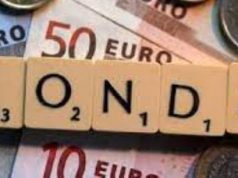…Central banks play a major role in managing the health of an economy through the evolution and implementation of appropriate monetary policies which aims at price stability
By Aarize Nwobu
WED FEB 19 2025-theGBJournal| Economy is the life wire of a people and it is about the allocation of scarce resources for production, distribution and consumption for the fulfilment of the needs of the people.
And the financial system is the dynamo which drives the economy by allocating investible funds from surplus ends to deficit ends for trade, production, innovation and job creation.
A healthy economy is the joy of the people and vice versa. Major parameters for measuring the health of an economy include inflation rate, exchange rate, interest rate, imports and exports, unemployment and consumer confidence.
An unhealthy economy is one with fast rising inflation which erodes purchasing power, high unemployment, decline in GDP and imbalance between imports and exports.
To maintain a healthy economy requires great expertise and dedication by both the fiscal and monetary authorities.
And experts have noted that a healthy economic growth rate should be between 2.0 percent to 3.0 percent and that a GDP growth above 4.0 percent for several quarters would overheat the economy and create assets bubble.
Central banks play a major role in managing the health of an economy through the evolution and implementation of appropriate monetary policies which aims at price stability.
Over years, the economy has been facing fundamental and stubborn challenges but some analysts have noted that in the past nine years the economy became badly hurt because of the fiscal policies of the previous administration.
Former Governor, Central Bank of Nigeria (CBN), Sanusi Lamido Sanusi noted that the immediate past administration of President Muhammadu Buhari badly managed the economy.
According to Sanusi, in the last eight years of the past administration, CBN continued to print money.
Printing money to finance government spending and incurring external debts causes inflation and devaluation and loss of confidence in the currency.
Thus, countries are advised to maintain fiscal responsibility, avoid run away debt, effective money supply and avoid inflation.
The economic reforms of the present administration aggravated inflation. President Tinubu took a drastic but necessary policy action by removing fuel subsidy and it created an unintended result by escalating inflation and hunger pandemic.
Inflation rate spiked from 22.40 percent in March 2023 to 34.80 percent in December 2024.
But after the rebasement of the Consumer Price Index ( CPI) by the National Bureau of Statistic(NBS), inflation is now at 24.48 percent.
But the NBS also clarified that the decline in the rebated inflation does not mean a decline in general price level.
In managing the economic challenges, CBN Governor, Olayemi Cardoso had noted that there were no quick fixes.
CBN has initiated strategic reforms which aims at creating enabling environment for inclusive economic development.
Cardoso also noted that achieving macroeconomic stability required sustained vigilance and proactive monetary stance.
The two major and current commitments of CBN are, managing inflation and exchange rate volatility.
According to Cardoso, “there is no magic wand to solve inflation in Nigeria. These are processes that need their time.”
CBN has consistently maintained a contractionary or dear monetary policy. The Bank has continually increased the Monetary Policy Rate( MPR) to fight inflation.
In February 2024 the MPR was raised from 18.75 percent to 22.75 percent. In March, 2024 it was raised to 24.75 percent and later to 26.25 percent. Presently it is at 27.50 percent.
CBN is optimistic that the policy stance would yield positive results. Cardoso observed that inflation would have reached 42.81 percent by December 2024 if not for CBN intervention.
And he further noted that the reforms were attracting foreign investors, but which are more likely to be foreign portfolio investors who are short-term speculative investors seeking quick gains in bonds and the stock market.
Foreign Portfolio Investors operate with volatile and impatient capital which often stream into economies in phases but often exit en masse.
The inflows enhance market liquidity, increase competition in local markets and which leads to greater efficiency and innovation.
They tend gravitate to economies and markets with high interest rates and favourable exchange rates such as obtains presently in the economy.
Besides the Inflow of foreign portfolio investments which are creating liquidity in the markets, reportedly, there had also been an increase of foreign reserves to beyond USD 40billion ,the highest in three years, as a result of the new foreign exchange code by CBN.
CBN has continued to evolve strategic policies towards restoring the integrity of the economy.
In a press report, Cardoso noted that “the CBN will continue implementing policies that enhance macroeconomic stability, promote private sector growth and create high quality jobs.
Nwobu, a Chartered Stockbroker and Business Journalist wrote via arizenwobu@yahoo.com Tel 08033021230
X-@theGBJournal|Facebook-the Government and Business Journal|email:gbj@govbusinessjournal.com|govandbusinessj@gmail.com










